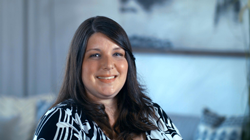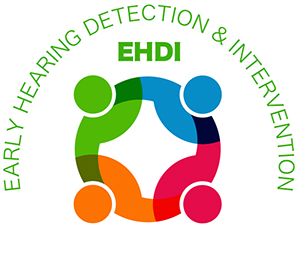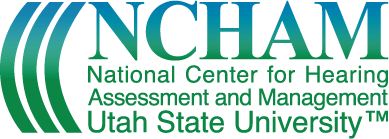Upcoming Webinar: Assuming Competence: What to do if you don't know what to do!
When: November 9, 2023 | 12:00 pm - 1:00 pm MDT
Description
Assuming competence is a phrase that isn't often used regarding young children, especially those with multiple disabilities. In this session, participants will hear from a parent perspective of a child with multiple disabilities (DeafBlind Plus), and how those in Early Intervention did not assume competence in either the child nor the parent; how this created confusion and turmoil will be reviewed. First person stories will be shared, so participants can understand where areas of need may exist in their own family or practice, and how with the changing of a mindset, one can easily begin anew, starting today!
We will discuss how assuming competence can change interactions with families and children. How we can ensure interactions are based in positivity and inclusion, and emphasis placed on the theory of availability and understanding within a child who may not be verbal. Non-verbal does not mean non-communicative! Various ways of communication will be discussed, and snippets of videos shown that allow for observation of a child with multiple disabilities communicating without language (Verbal or manual).
Lastly, participants will be able to engage their minds and hearts with ideas for best practices around assuming competence in all children. Understanding how this global thought can greatly improve services to those with lower incidence disabilities, their peers and families will round out this session. Participants will give themselves space and permission to honestly reflect on their views and values, as well as be given permission to say, "I don't know". Clear ideas, suggestions and honest discussion will take place during this session.
Let's all improve our willingness to be open and bring in our families and co-workers versus pushing them away with our words or actions by working together during this session.
Learning goals for the webinar include:
- Participants will be able to describe what "assuming competence" means with a child, emphasis on a child with multiple disabilities.
- Participants will be capable of describing ways to appropriate interact with a child using a skill associated with assuming competence.
- Participants will have key ideas to bring back to their family or workplace to begin implementing new policies and strategies.
Presenters:
Michelle John

Michelle holds dual Bachelor of Arts degrees in psychology and sociology from Hofstra University, and her Masters of Science degree in community counseling and psychology with a specialization in addictions counseling from Springfield College. She also earned her certification as an End-of-Life Doula through the University of Vermont. Currently, she is in the final portfolio stage of becoming a certified DeafBlind Intervener. She is also a Newborn Screening Ambassador for Expecting Health, works closely with the National Center on DeafBlindness, and is a governor-appointed member of the VT Developmental Disabilities Council.
While spending many of her beginning adult years enjoying pursuing higher education, and proud of these accomplishments, she's just as quick to share life sent her in a divergent direction; her highest achievement comes from raising and educating her 3 children by being a stay-at-home parent. She is all things medical, educational, coordination and physical care to her 9-year-old DeafBlind+ (Plus) child who has a variety of significant medical complexities, and willing teacher to those with questions and readiness to learn—most often her other two children.
Michelle has been the President of Vermont Hands & Voices since 2018. In this role, she sits on a variety of Boards, Committees, Coalitions, Panels, and Councils to further the identified needs of children birth to adulthood, who are D/deaf/hard of hearing/plus and their families. She is passionate about inclusion of choices, D/HH/Plus adult infusion, all volunteer-organizations, NASDSE Guidelines, parents as paid caregivers to medically complex children, DeafBlind Plus needs, and siblings of D/d/hh/Plus individuals, as well as the vastly differing needs of families in rural living. Spending time in webinars, meetings, trainings, as well as presenting at and fully attending various conferences yearly keeps her up to date on best practices and technology available, as well as able to meet a variety of stakeholders who can become a resource to families across the US and Canada.
In her middle of the night “spare time”, she enjoys reading autobiographies, creating wild goals that sometimes seem unattainable, watching reality television and “American Greed”, and pretending to get some sleep.


